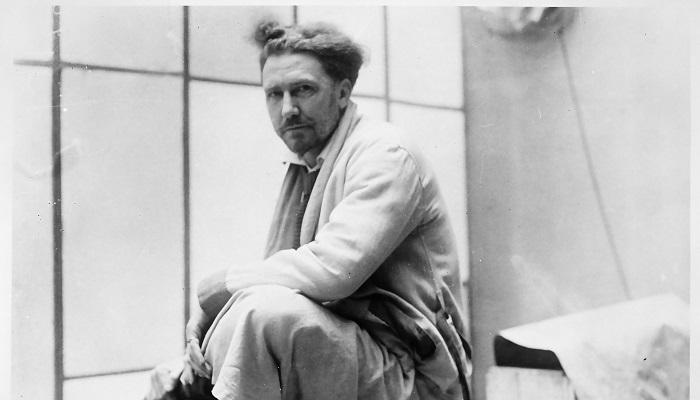How Ezra Pound Balanced Art and Politics

Ezra Pound was one of the most influential figures of modernist poetry. His work transformed the landscape of literature in the twentieth century. At the same time, his political beliefs and affiliations often overshadowed his artistic achievements. Understanding how Ezra Pound balanced his art and politics requires a close look at his poetry, prose, and public life. His career illustrates both the tension and the synergy between creative expression and political ideology.
Early Life and Literary Beginnings
Formative Years and Influences
Ezra Pound was born in 1885 in Hailey, Idaho, and raised in a family that valued education and culture. From an early age, he was drawn to literature, studying classical works in Greek and Latin. These early influences shaped his appreciation for structure, precision, and economy of language. Pound’s exposure to European literary movements later guided his approach to modernist poetry.
The Move to Europe
In the early 1900s, Pound moved to London. There he encountered literary figures like T.S. Eliot, James Joyce, and Wyndham Lewis. He quickly became a central figure in the modernist movement. He championed new poetic techniques, such as imagism, emphasizing clarity, economy, and the direct treatment of subjects. Even in these years, Pound began expressing his views on economics and politics, foreshadowing the intertwining of his art and ideology.
Literary Innovation and Modernism
Imagism and Precision in Language
Pound’s work in imagism focused on precision, musicality, and sharp imagery. Poems like “In a Station of the Metro” illustrate his skill in condensing complex emotions into a few lines. This commitment to clarity reflected his broader belief that art should be disciplined, purposeful, and socially relevant.
The Cantos and Ambition
His epic work, The Cantos, demonstrates the full scope of his artistic ambition. In this long, complex poem, Pound combined historical, literary, and economic references. He drew on multiple languages and cultural sources. Through The Cantos, Pound attempted to create a comprehensive vision of civilization. At the same time, his commentary on finance, government, and morality revealed his political concerns.
Political Engagement
Economic and Political Ideas
Ezra Pound was deeply interested in economics, particularly in critiques of usury and financial corruption. He believed that mismanaged money systems harmed societies and stifled human creativity. His political writings, sometimes published in pamphlets and radio broadcasts, often merged with his literary ideas. He argued that ethical governance and cultural vitality were inseparable.
Controversial Affiliations
Pound’s political positions became increasingly controversial during the 1930s and 1940s. He expressed support for Italian Fascism and criticized the United States and the Allied powers during World War II. His actions led to his arrest in 1945 for treason. Critics often view this period as a moral failing, but others see it as a complex example of the struggle to balance personal ideology and artistic vision.
The Intersection of Art and Politics
Poetry as Political Expression
For Ezra Pound, art and politics were intertwined. He believed that poetry could not be separated from social and economic realities. The Cantos include discussions of historical leaders, trade systems, and governance. These political reflections were embedded in highly experimental literary forms. Pound’s work demonstrates that poetry could serve both aesthetic and social purposes simultaneously.
Challenges of Integration
Balancing art and politics proved difficult. Some critics argue that Pound’s political obsession sometimes distracted from his poetry. Others praise his audacity in addressing difficult economic and historical themes. The tension between art and politics is evident in his later works, where dense references and fragmented narratives can obscure meaning. Yet these same qualities reveal his commitment to a unified vision of culture and society.
Legacy and Controversy
Influence on Modernist Poetry
Despite political controversy, Ezra Pound had a profound impact on twentieth-century literature. He mentored T.S. Eliot, helping him edit The Waste Land, and promoted the works of James Joyce, H.D., and Robert Frost. His insistence on precision, clarity, and historical awareness shaped the modernist movement.
Reassessing His Work Today
Modern readers often struggle with Pound’s dual identity as an artistic innovator and a political provocateur. His political views cannot be separated from his literary contributions, yet his innovations in form, language, and structure remain influential. Scholars continue to debate whether it is possible to appreciate his poetry independently of his politics.
Ethical and Artistic Reflections
The Responsibility of Artists
Ezra Pound’s life raises questions about the responsibilities of artists. Should art be judged separately from politics? Can political missteps diminish artistic achievement? Pound’s experience suggests that the two spheres inevitably influence each other. His career is a reminder that art can be a vehicle for personal beliefs, for better or worse.
The Balance Between Vision and Ideology
Pound’s attempt to balance art and politics was never simple. He pursued a high artistic vision while advocating controversial ideas. His literary experiments often pushed boundaries, while his political positions drew criticism. The balance he sought shows the complexity of human ambition, intellect, and morality.
Conclusion
Ezra Pound remains one of the most fascinating figures in modern literature. His poetry revolutionized form and technique, while his political engagement sparked debate and controversy. The balance between art and politics in his life demonstrates both the potential and the peril of merging creative vision with ideological conviction. Through his mentorship, experimentation, and enduring works, Pound left a legacy that challenges readers to think critically about the connections between art, society, and personal belief. His life and work remind us that great art often exists in dialogue with the cultural and political realities of its time, even when that dialogue is fraught with tension.
- Art
- Causes
- Crafts
- Dance
- Drinks
- Film
- Fitness
- Food
- Spellen
- Gardening
- Health
- Home
- Literature
- Music
- Networking
- Other
- Party
- Religion
- Shopping
- Sports
- Theater
- Wellness



